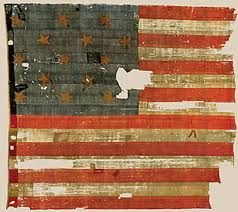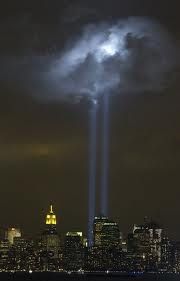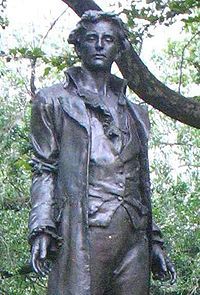This is your morning Open Thread. Pour your favorite beverage and review the past and comment on the future.
September 13 is the 256th day of the year (257th in leap years) in the Gregorian calendar. There are 109 days remaining until the end of the year.
On this day in 1814, Francis Scot Key pens Star-Spangled Banner

“The Star-Spangled Banner“ is the national anthem of the United States of America. The lyrics come from “Defence of Fort McHenry”, a poem written in 1814 by the 35-year-old lawyer and amateur poet, Francis Scott Key, after witnessing the bombardment of Fort McHenry by the British Royal Navy ships in Chesapeake Bay during the Battle of Fort McHenry in the War of 1812.
The poem was set to the tune of a popular British drinking song, written by John Stafford Smith for the Anacreontic Society, a men’s social club in London. “The Anacreontic Song” (or “To Anacreon in Heaven”), with various lyrics, was already popular in the United States. Set to Key’s poem and renamed “The Star-Spangled Banner“, it would soon become a well-known American patriotic song. With a range of one and a half octaves, it is known for being difficult to sing. Although the song has four stanzas, only the first is commonly sung today, with the fourth (“O thus be it ever when free men shall stand…”) added on more formal occasions. In the fourth stanza, Key urged the adoption of “In God is our Trust” as the national motto (“And this be our motto: In God is our Trust”). The United States adopted the motto “In God We Trust” by law in 1956.
“The Star-Spangled Banner” was recognized for official use by the Navy in 1889 and the President in 1916, and was made the national anthem by a congressional resolution on March 3, 1931 (46 Stat. 1508, codified at 36 U.S.C. § 301), which was signed by President Herbert Hoover.
Before 1931, other songs served as the hymns of American officialdom. “Hail, Columbia” served this purpose at official functions for most of the 19th century. “My Country, ‘Tis of Thee“, whose melody was derived from the British national anthem, also served as a de facto anthem before the adoption of “The Star-Spangled Banner.” Following the War of 1812 and subsequent American wars, other songs would emerge to compete for popularity at public events, among them “The Star-Spangled Banner.”

 On this day in
On this day in  Welcome to the Stars Hollow Health and Fitness weekly diary. It will publish on Saturday afternoon and be open for discussion about health related issues including diet, exercise, health and health care issues, as well as, tips on what you can do when there is a medical emergency. Questions are encouraged and I will answer to the best of my ability. If I can’t, I will try to steer you in the right direction. Naturally, I cannot give individual medical advice for personal health issues. I can give you information about medical conditions and the current treatments available.
Welcome to the Stars Hollow Health and Fitness weekly diary. It will publish on Saturday afternoon and be open for discussion about health related issues including diet, exercise, health and health care issues, as well as, tips on what you can do when there is a medical emergency. Questions are encouraged and I will answer to the best of my ability. If I can’t, I will try to steer you in the right direction. Naturally, I cannot give individual medical advice for personal health issues. I can give you information about medical conditions and the current treatments available. 



Recent Comments